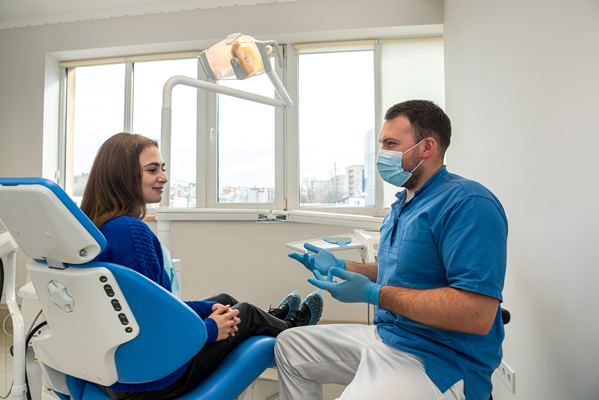What to Avoid With Denture Care

Dentures need to be cleaned properly frequently, just like natural teeth. This will help prevent a wide range of problems. You can keep your mouth healthy and wear your dentures for a long duration if you take proper care of them. Read on to find out what to avoid when it comes to denture care.
Dentures
Dentures are replacements for lost teeth as well as the tissues connected to those teeth. Complete or full dentures replace all of the teeth, whereas partial dentures are used to replace some missing teeth. Partial dentures also aid in preventing other teeth from shifting position. Dentures can be used for several years before a patient has to replace them. But it is important to note that these appliances are delicate and can break if they are not handled well. Patients should take good care of their dentures to avoid damaging them.
Avoid abrasive cleaning materials
It is crucial to clean dentures properly on a regular basis. But, unfortunately, many people clean their dentures incorrectly or with the wrong products. A person should avoid using abrasive cleaning materials that can damage the denture. These include brushes with stiff bristles, harsh toothpaste, and strong cleansers. An individual should brush dentures every day with a brush and a denture cleanser. Using a brush that is made for cleaning dentures is highly encouraged, but people can also use a toothbrush with soft bristles.
Avoid hot water
Patients may be advised to wear dentures almost constantly for the first few weeks after receiving them. Sometimes, patients may even have to wear them while sleeping. But under normal circumstances, patients are supposed to remove them at night before going to bed. This gives the mouth a chance to rest. After removing them, patients should soak them in a soaking solution or water overnight. People should never use hot or boiling water because it could warp the dentures.
Avoid bleach-containing products
Products containing bleach should not be used because they can weaken dentures. Bleaching products can also change the color of the dentures. It is also ideal to avoid soaking dentures with metal attachments in any solution containing chlorine because it can tarnish the metal. But after taking out dentures, people should put them in water to stop them from drying out or warping.
Handling dentures
Dentures should be rinsed after eating to remove food debris as well as other loose particles. A denture is fragile and can break if it is dropped or even squeezed too tightly. Therefore, it is advisable to put some water in the sink to protect dentures from breaking if the appliances fall accidentally. Alternatively, an individual may place a towel in the sink or on the counter.
Visit your dentist today
Dentures are custom-made to fit your mouth, which makes them comfortable to wear. You should brush your dentures with a denture brush or regular soft-bristle toothbrush and a denture cleaner. But avoid using products that could damage your dentures. And boiling water should also not be used to sterilize them. To learn more about proper denture care, talk to your dentist today.
Are you considering dentures in the Lancaster area? Get more information at https://lancasterpadentist.com.
Check out what others are saying about our dental services on Yelp: Dentures and Partial Dentures in Lancaster, PA.
Recent Posts
You may be considering implant supported dentures already. Part of considering this option is to know how long these teeth replacements will last. These dentures are an investment. Taking care of them is an order. If you want to know how to extend the life of your implant supported dentures, here are the details.This applies…
Dentures help some people regain their smiles without surgery. Breaking them in is important. It is the period of making your prosthesis a part of your life. Learning how to wear your dental prosthesis is important. If you want to find out how to maintain a secure and comfortable attachment for your dentures, here are…
Dentures are not exclusive to senior citizens. Many unavoidable circumstances could lead to tooth loss. This is when a quick teeth replacement system must come in. If you want to find out when you should get dentures, here are the details.Tooth loss results in gaps between teeth. The empty spaces prompt the neighboring teeth to…
Implant-supported dentures are often preferred over their conventional counterparts due to the excellent stability they provide and their bone preserving properties. Unlike traditional dentures, which rest on the wearer’s gums and are held in place via suction, implant-supported dentures are attached to implants that are strategically inserted into the patient’s jaw.Thinking about giving implant-supported dentures…


